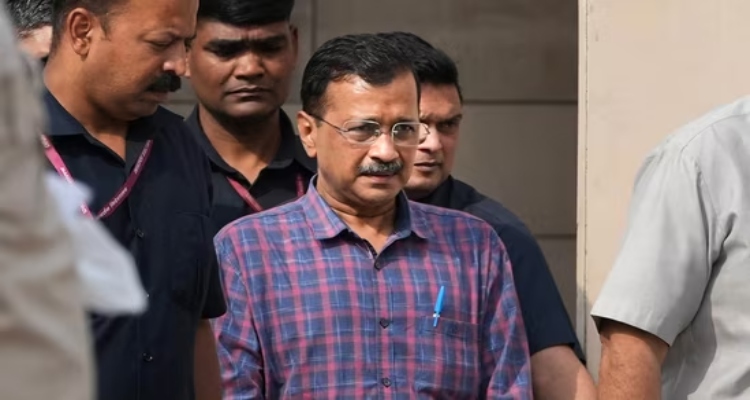
The Delhi High Court on Tuesday issued a notice to the Central Bureau of Investigation in response to a plea by Delhi Chief Minister Arvind Kejriwal against his arrest in the Excise Policy case.
Hearing In The Case
Justice Neena Bansal Krishna, after initial submissions by Senior Advocate Dr. Abhishek Manu Singhvi, directed a reply within 7 days and a rejoinder 2 days thereafter, scheduling a detailed hearing for July 17, 2024.
Senior Advocate Singhvi informed the court that a bail plea would be filed soon. Kejriwal’s plea argues that his arrest violated statutory mandates under Sections 41 and 60A of the CrPC, emphasizing that the alleged offense, punishable by a maximum of 7 years, required compliance with these sections, which was not met.
Kejriwal claimed no proper justification was given for his arrest, noting the ongoing 2-years investigation. He stated the arrest, based on material available before June 4, was illegal as it involved re-evaluation, not permitted by law. He highlighted that CBI received permission to investigate under Section 17A of the Prevention of Corruption Act only on April 23, yet presented no new evidence justifying his arrest after this date.
Case History
On June 29, the Rouse Avenue Court sent Kejriwal to judicial custody. The CBI alleged he did not cooperate during interrogation, giving evasive replies contrary to evidence. The CBI stated Kejriwal could not explain the increase in profit margins for wholesalers under the new Excise Policy and the hasty approval of the revised policy during the peak of the second Covid wave.
Kejriwal was also questioned about his associate Vijay Nair’s meetings with liquor business stakeholders and alleged demands for illegal gratification. He failed to provide satisfactory answers regarding meetings with Magunta Sreenivasulu Reddy and others and the transfer of ₹44.54 crore for the Goa Assembly Elections.
Despite the allegations, the CBI stated further custodial interrogation was unnecessary. The CBI expressed concerns about Kejriwal potentially influencing witnesses and tampering with evidence, given his political influence.
On June 26, the trial court’s vacation judge had initially sent Kejriwal to three days of CBI custody. Kejriwal addressed the court, denying claims of implicating Manish Sisodia and accusing the CBI of media defamation. The court acknowledged Kejriwal’s statement, confirming he did not make such claims.
Senior Advocate Vikram Chaudhari, representing Kejriwal, opposed the remand application, questioning the timing of the arrest and the CBI’s need to identify individuals through Kejriwal. He argued the CBI labeled Kejriwal’s responses as evasive only because they sought an admission of guilt.
Kejriwal was formally arrested on June 26 after the Vacation Judge allowed the CBI to interrogate him in court. The Delhi High Court recently stayed Kejriwal’s bail order, noting the trial court failed to satisfy the conditions of Section 45 of the Prevention of Money Laundering Act before passing the order.




